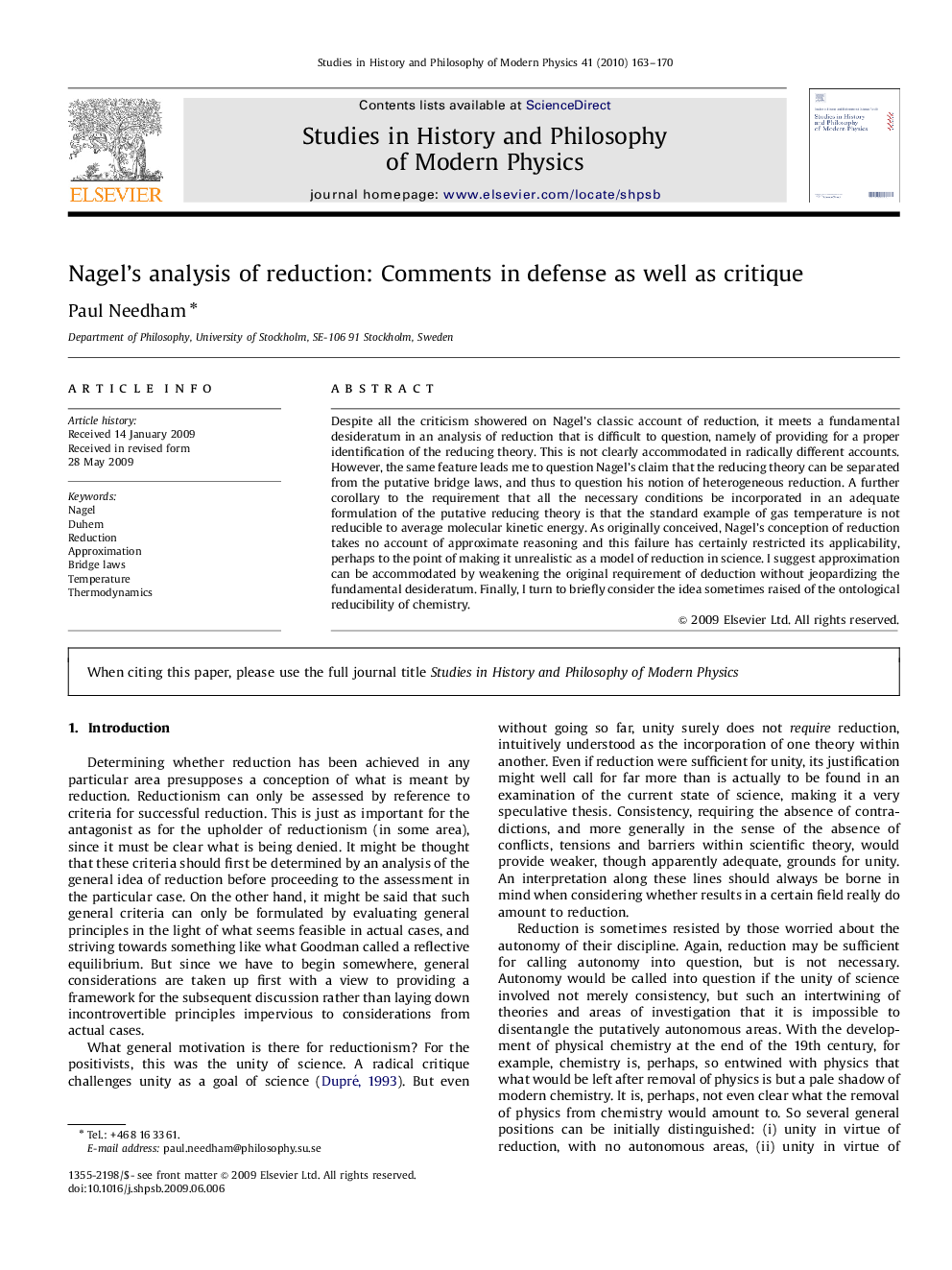| Article ID | Journal | Published Year | Pages | File Type |
|---|---|---|---|---|
| 1161680 | Studies in History and Philosophy of Science Part B: Studies in History and Philosophy of Modern Physics | 2010 | 8 Pages |
Despite all the criticism showered on Nagel's classic account of reduction, it meets a fundamental desideratum in an analysis of reduction that is difficult to question, namely of providing for a proper identification of the reducing theory. This is not clearly accommodated in radically different accounts. However, the same feature leads me to question Nagel's claim that the reducing theory can be separated from the putative bridge laws, and thus to question his notion of heterogeneous reduction. A further corollary to the requirement that all the necessary conditions be incorporated in an adequate formulation of the putative reducing theory is that the standard example of gas temperature is not reducible to average molecular kinetic energy. As originally conceived, Nagel's conception of reduction takes no account of approximate reasoning and this failure has certainly restricted its applicability, perhaps to the point of making it unrealistic as a model of reduction in science. I suggest approximation can be accommodated by weakening the original requirement of deduction without jeopardizing the fundamental desideratum. Finally, I turn to briefly consider the idea sometimes raised of the ontological reducibility of chemistry.
